






WHO HOLDS THE KEY TO APP SUCCESS?


TaxiPoint Chief Editor:
Perry Richardson
TaxiPoint Publishing & Advertising Manager:
Lindsey Richardson
Visit us online at: www.taxi-point.co.uk
Write to us at: contact@taxi-
Advertising enquiries at: advertising@taxi
The publishers reserve the right to refuse, withdraw, amend or otherwise deal with all advertisements without explanation. All advertisers must comply with the British Code of Advertising practice.
PERRY RICHARDSON

The views expressed in this publication are not necessarily those of the publishers.
All written and image rights are reserved by the author as displayed. Reproduction in whole or in part without prior permission from the publisher is strictly prohibited.
Copyright brand TaxiPoint 2024. Creative Common image licences displayed where applicable.


Hello and welcome to the latest edition of TaxiPoint Magazine.
As the school gates swing open and children return to classrooms, the taxi industry anticipates the return of steady work. The autumn months often bring a surge in demand, and with it, hopes for a fruitful period of business.
It’s not just the students making a comeback. Politicians, too, are resuming their duties after the summer break, and for the taxi trade, this means a renewed focus on long-awaited reforms. Before the recess, there were whispers of changes to taxi and private hire regulations, particularly around cross-border rules and national standards. The next few months
may bring clearer indications on whether these proposals will gain traction.
In this month’s issue, we examine misinformation in the trade and how it affects recruitment. The growing calls for mandatory CCTV in vehicles are also explored, as the trade looks for ways to improve safety and accountability.
With these and many more important topics on the horizon, the September 2024 edition provides valuable insights for those in the trade.
Be lucky,

TaxiPoint
Editor and Founder
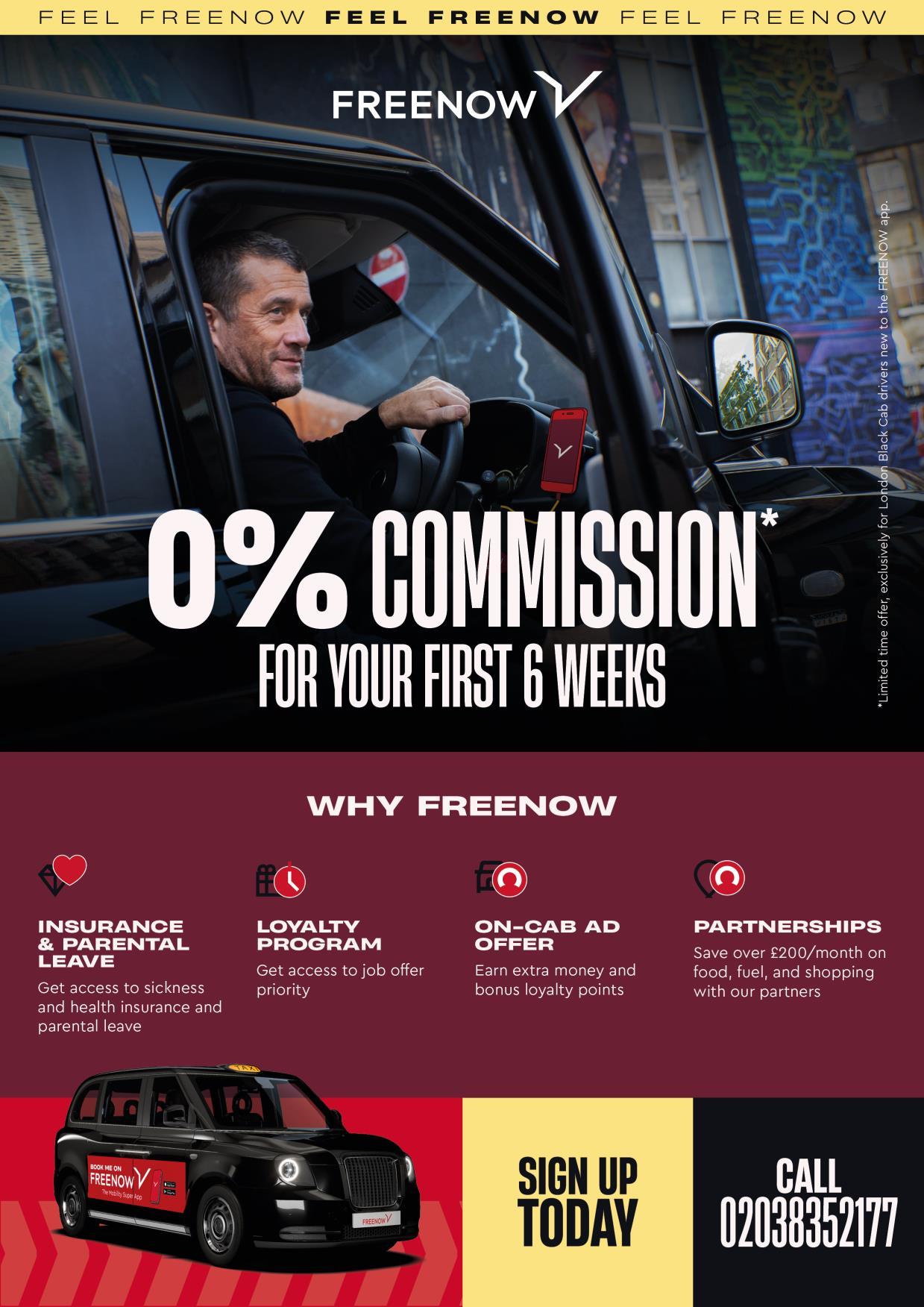


isinformation from those within the taxi trade has increasingly become a formidable challenge when it comes to recruitment in the taxi driver industry. In an era where social media dominates public opinion, the portrayal of the profession has been significantly skewed, leading to potential recruits forming distorted views about what it means to be a taxi driver. This has had an impact on the recruitment of drivers, with many deterred from pursuing a career in the trade due to
misconceptions from those that continue to work and enjoy the fruits of labour from within.
The role of a taxi driver is one that, like all jobs, comes with its own set of challenges and rewards. However, the narrative circulating on social media platforms often overly highlights the negatives while downplaying the financial benefits. This skewed portrayal does a disservice to both the industry and to those who might otherwise consider joining it. By focusing disproportionately on the downsides - operating costs,
traffic and the perceived lack of job satisfaction - the true earning potential and job satisfaction that many drivers experience is obscured.
Social media has undeniably transformed how we communicate and share information, but it has also become a double-edged sword, particularly in niche industries like taxi driving. In various online taxi driver groups, discussions can
easily spiral into echo chambers where negative experiences are amplified, and positive ones are often overshadowed or ignored.
Taxi drivers who could be classed as ‘dinosaurs’ of the trade who are unwilling or unable to adapt to modern day taxi driving are more vocal than those enjoying what the job has to offer. A controversial message is also likely to bring in more comments and user reactions, which in turn sparks algorithms and provides more reach to that of more truthful and accepted opinion.
While these groups can provide valuable support and community for existing drivers, they can also inadvertently serve as a barrier to recruitment by painting an overly bleak picture of the profession.
Potential recruits, especially those unfamiliar with the industry, researching the viability of the sector will undoubtedly stumble upon these discussions and form their opinions based solely on misinformation being discussed by a tiny minority of the trade. The reality, however, is more nuanced.
Taxi driving, like any profession, has its challenges, but it also offers a range of benefits that are often overlooked in these online conversations.


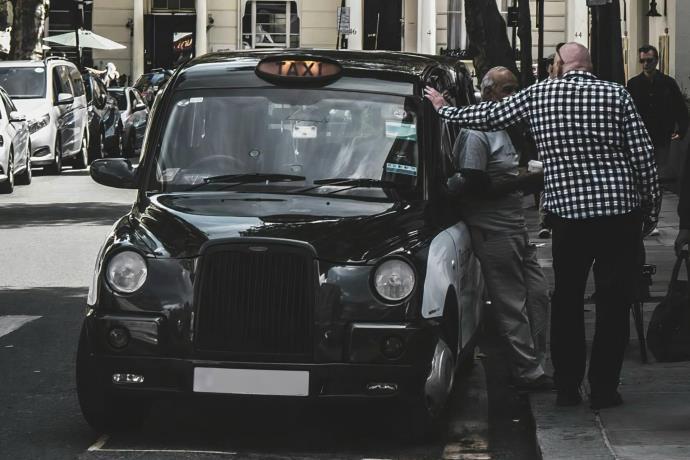
Addressing this issue requires a concerted effort from within the industry. Now, more than ever, there is a clear need for verified, reliable information that presents a balanced view of the profession. The introduction of industry ambassadors could play a key role in this. These ambassadors would be experienced and noncontroversial drivers who can speak authoritatively about both the challenges and the benefits of the job. They would serve as trusted sources of information for those considering a career in taxi driving, helping to counteract the misinformation prevalent on social media.
These ambassadors, who are able to run a successful taxi
business, could provide insights into the realities of the job, including potential earnings, the flexibility that comes with being your own boss, and the satisfaction that comes from serving the community. They could also address common concerns about the job, offering practical advice on how to navigate the challenges that come with the territory like heavy traffic and speeding cameras.
Furthermore, industry stakeholders could take a more active role in disseminating accurate information. This could involve sharing content that highlights the success stories within the industry, offering a more balanced perspective that includes the rewards provided by the job if you run your business successfully. By showcasing the experiences of those who have built successful careers in the industry, the narrative around taxi driving could begin to shift, rather than listening to those who were unable to thrive.



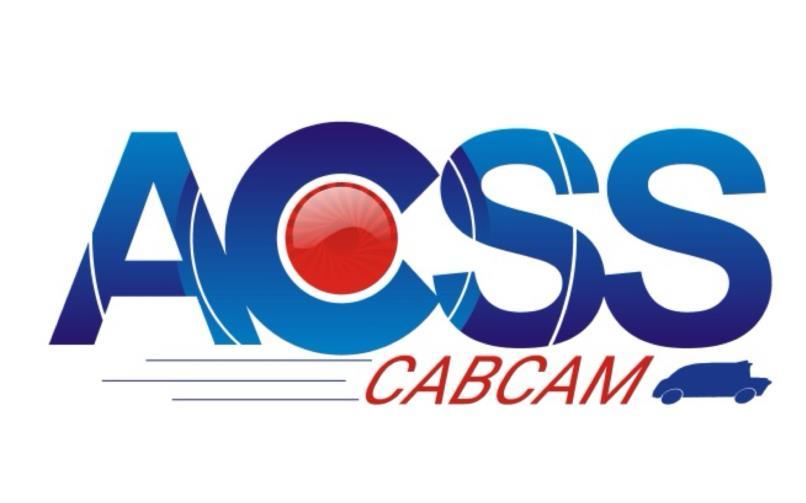
CTV is becoming increasingly prevalent in the taxi industry for several reasons. These range from helping to deter and record incidents such as assaults, to them simply becoming a mandatory licensing requirement. We caught up with specialists on the topic at ACSS, a UK-based company specialising in safety and security solutions for commercial vehicle fleets such as taxis, to learn more.
For those in the industry that haven’t come across ACSS yet, what service do you prove to the taxi industry?
“ACSS can offer the UK taxi industry several key components around CCTV. This includes advice on the best and most costeffective system meeting driver’s specific needs, assurance that any ACSS system will meet the local Authority’s requirements, and
control, including ICO registration process.
“We also provide on-going technical support for either operating, maintaining or repairing the system. All recordings are encrypted to AES256 standard, the highest encryption level commercially available, as recommended by the ICO, and now required by Transport for London (TfL).”
How can internal CCTV protect a taxi driver’s job?
“Internal CCTV can be a crucial safeguard for taxi drivers, serving
directly impact their job security. Firstly, it provides a clear, unbiased record of events inside the vehicle, which can be invaluable in resolving disputes. For instance, if a passenger makes a false accusation against a driver whether it’s about overcharging, rudeness, or inappropriate behaviour the recorded footage can provide concrete evidence to refute the claim. This not only helps in maintaining the driver's reputation but also protects them from unjust disciplinary actions, potentially saving their job.

“Moreover, internal CCTV can deter passengers from engaging in aggressive or inappropriate behaviour, knowing that their actions are being recorded. This preventive measure creates a safer working environment, reducing the likelihood of incidents that could lead to a driver being unfairly penalised or even dismissed. In cases where incidents do occur, the footage can also be used to assist law enforcement, further protecting the driver from legal liabilities.”
A cabbie’s biggest worry around CCTV is usually around data ownership. Should they be concerned and how does it work?
“Data ownership is indeed a valid concern for cabbies, but with the right setup, these worries can be
effectively mitigated. The key to understanding this lies in how the data is managed and protected. The recordings are stored directly in the vehicle, specifically in a Mobile Digital Video Recorder (MDVR) placed in the boot of the vehicle.
“This setup offers a couple of significant advantages. First, because the data is stored locally within the vehicle, the cabbie retains control over it. There’s no third-party cloud storage where the footage could potentially be accessed or misused by others. This local storage setup ensures that the cabbie knows exactly where the data is and who has access to it. Moreover, the recordings are protected by AES256 encryption, the most secure encryption standard commercially available today. This means that even if someone were
to physically access the MDVR, they wouldn’t be able to view the recordings without the appropriate decryption key. The key is an additional layer of security that further ensures that the data remains private and under the control of the cabbie.”
Can you see more local authorities making CCTV mandatory in the years ahead?
“Absolutely. Concerns about either Privacy Laws or the perceived burden of becoming the data controller, have led some local Authorities not to make CCTV mandatory in Taxis. Many are now realising, however, that these concerns can be relatively easily managed as the experience of early adopters demonstrate and that the benefits far outweigh any risks or burden.”

The taxi and private hire industry continues to be a profession marked by experience, independence, and a striking gender imbalance, according to the latest government data from 2024. While the core demographics of the industry remain consistent, subtle shifts in age and ethnicity highlight how this traditional sector is slowly evolving.
One of the most enduring characteristics of the taxi and private hire industry is its overwhelming male majority. In 2024, 93.6% of drivers were male, a statistic that has remained steadfast for over a decade. This gender disparity has consistently hovered above 90%, reflecting a profession where men have long dominated the landscape. While efforts to diversify the workforce have been discussed, the numbers suggest that the industry remains firmly in the hands of men, with little change on the horizon.
The average age of a taxi or private hire driver in 2024 was 48 years, a figure that aligns closely with previous years. This statistic highlights the experience-driven nature of the profession, where seasoned drivers often continue working well into their later years. However, the age profile has subtly shifted over the last decade. There has been a slight decrease in the proportion of younger drivers, with only 22% of the workforce under 40 in 2024. In contrast, those aged 60 or over now make up 18% of drivers, indicating that the industry may be aging, with fewer younger entrants replacing those who retire or leave the profession.
While the gender and age dynamics remain relatively stable, the ethnic composition of taxi and private hire drivers has seen more noticeable changes. In 2024, the two largest ethnic groups were Asian or Asian British, comprising 42.1% of the workforce, and White, making up 41.5%. This is a significant shift from 2010 when 63% of drivers were


White, and only 29% identified as Asian or Asian British. This change reflects broader demographic trends in the UK and points to the growing presence and influence of minority ethnic groups within the industry.
Another defining characteristic of the taxi and private hire industry is the high level of selfemployment. In 2024, a staggering 89.1% of drivers were self-employed, a figure that has risen steadily from 76% in 2010. This trend underscores the independent nature of the profession, where many drivers prefer the flexibility and autonomy that comes with being their own boss. However, this rise in selfemployment comes with its own set of challenges, particularly in terms of financial
stability and access to benefits traditionally associated with full-time employment.
While the overall number of drivers has remained robust, the proportion of part-time drivers appears to be on the decline. In 2024, 17.2% of drivers were working part-time, a slight decrease compared to previous years. This could indicate a shift towards more fulltime work within the industry, possibly driven by the increasing costs associated with vehicle maintenance, insurance, and licensing. For many drivers, the financial pressures of the job may make part-time work less viable, pushing them towards full-time commitments to sustain their livelihoods.



Lichfield District Council has introduced a proposal that could potentially reshape the way private hire vehicle (PHV) services operate across local authority boundaries… will other authorities follow?
The council's proposed policy, which would require operators to inform passengers when their driver is licensed by another authority, aims to bring greater transparency to the increasingly complex landscape of cross-border taxi and private hire services.
The proposal is straightforward but significant. It mandates that bookings allocated to vehicles licensed by a different authority must be recorded in a separate register. Furthermore, operators are required to notify passengers clearly if their driver and vehicle are not licensed by Lichfield District Council. The notification must include a specific statement that the council has no authority to take licensing action against the driver or vehicle in the event of a complaint, directing customers instead to the authority that issued the licence. This proposal comes at a time when the issue of cross-border hire has become a major point of contention within the taxi industry.
Traditionally, taxi and private hire vehicle (PHV) drivers were expected to operate primarily within the area where they were licensed. However, the rise of app-based booking platforms and the advent of new technology have blurred these boundaries. Drivers can now easily accept bookings from outside their licensed area, often working in locations where they may be unfamiliar with local regulations and road conditions.
The practice of cross-border hiring has led to a number of challenges for local authorities. Licensing authorities have found it increasingly difficult to enforce their own rules and standards when drivers from other areas operate within their jurisdiction. This has raised concerns about public safety, as local councils have no control over the licensing


process of out-of-area drivers and vehicles, which may have different standards of scrutiny.
Critics of cross-border hiring argue that it undermines the integrity of local licensing systems. They point out that drivers who operate in multiple jurisdictions might choose to be licensed in areas with less stringent requirements, leading to a "race to the bottom" in terms of safety and quality. This situation has created frustration among drivers and operators who adhere to stricter local regulations, as they find themselves competing with those who may have been licensed under more lenient conditions.
On the other side of the debate, proponents of cross-border hiring argue that it promotes competition and provides consumers with more choices. They might argue that the flexibility offered by modern booking platforms benefits both drivers and passengers by allowing for more efficient matching of supply and demand.
Lichfield District Council's proposal attempts to address these concerns by enhancing transparency and ensuring that passengers are fully informed about the licensing status of their drivers. By making it clear to passengers when a driver is licensed elsewhere, the council hopes to empower consumers to make informed decisions and direct complaints to the appropriate authority if issues arise.
The question now is whether this approach could become the standard across the UK. If widely adopted, it could lead to a more consistent and transparent framework for managing cross-border taxi services, helping to resolve some of the current controversies.
However, for this approach to be truly effective, it would require a concerted effort from ALL licensing authorities. A patchwork of different policies across the country could lead to further confusion and undermine the very transparency the proposal seeks to promote.


“DISABLED PEOPLE SHOULD BE ABLE TO TRAVEL EASILY, CONFIDENTLY, AND WITH DIGNITY”
The Transport Minister has stated that disabled people should expect to be able to travel ‘easily, confidently, and with dignity’, as a shortage of wheelchair accessible taxis is highlighted.
Sarah Green MP raised concerns about the lack of wheelchair accessible taxis and private hire vehicles (PHVs) in Buckinghamshire.
In response, Simon Lightwood MP, the Transport Minister, highlighted the Government’s commitment to ensuring that disabled people can travel with ease, dignity, and confidence.
Lightwood acknowledged the challenges wheelchair users face when trying to secure suitable transport. He referred to best practice guidance, issued in November 2023, which advises local authorities to assess demand for wheelchair accessible vehicles (WAVs) and work towards ensuring an adequate supply as part of a varied fleet that meets different passenger needs.

However, the Minister noted that the Department for Transport was unaware of any local loan or grant schemes to assist in the purchase of WAVs. The Government does offer an existing Plug-In Taxi Grant (PiTG), which offers up to £6,000 towards the cost of an eligible WAV, though he confirmed that the scheme is regularly reviewed to ensure value for money.

The discussion highlights ongoing concerns about accessible transport for wheelchair users, particularly outside major urban areas, where availability can be limited. Further action may be necessary to close the gap and ensure all passengers can access suitable services.
Simon Lightwood MP said: ”Disabled people should be able to travel easily, confidently, and with dignity.
“I know that in some areas it can be difficult for wheelchair users to obtain a suitable wheelchair accessible taxi or PHV when they need one. Best practice guidance, published in November 2023, recommends authorities assess the demand for wheelchair accessible vehicles (WAVs) and take steps to ensure that there are sufficient available, as part of a “mixed fleet” of vehicles suitable for a range of passenger needs.
“The Department is not aware of whether there are any loan or grant schemes run by Local Authorities to encourage the purchase of WAVs.
“The Government’s Plug-In Taxi Grant (PiTG) continues to provide up to £6,000 towards the cost of an eligible vehicle, which must be wheelchair accessible. We keep grants under the Scheme under review to ensure best value for the taxpayer.
“As of 1 April 2023, 67% of authorities, including Buckinghamshire Council required all or part of their taxi fleet to be wheelchair accessible. Whilst the most recent annual taxi and PHV statistics survey included a new question on the nature of authority policies on WAVs, the responses are yet to be analysed.”
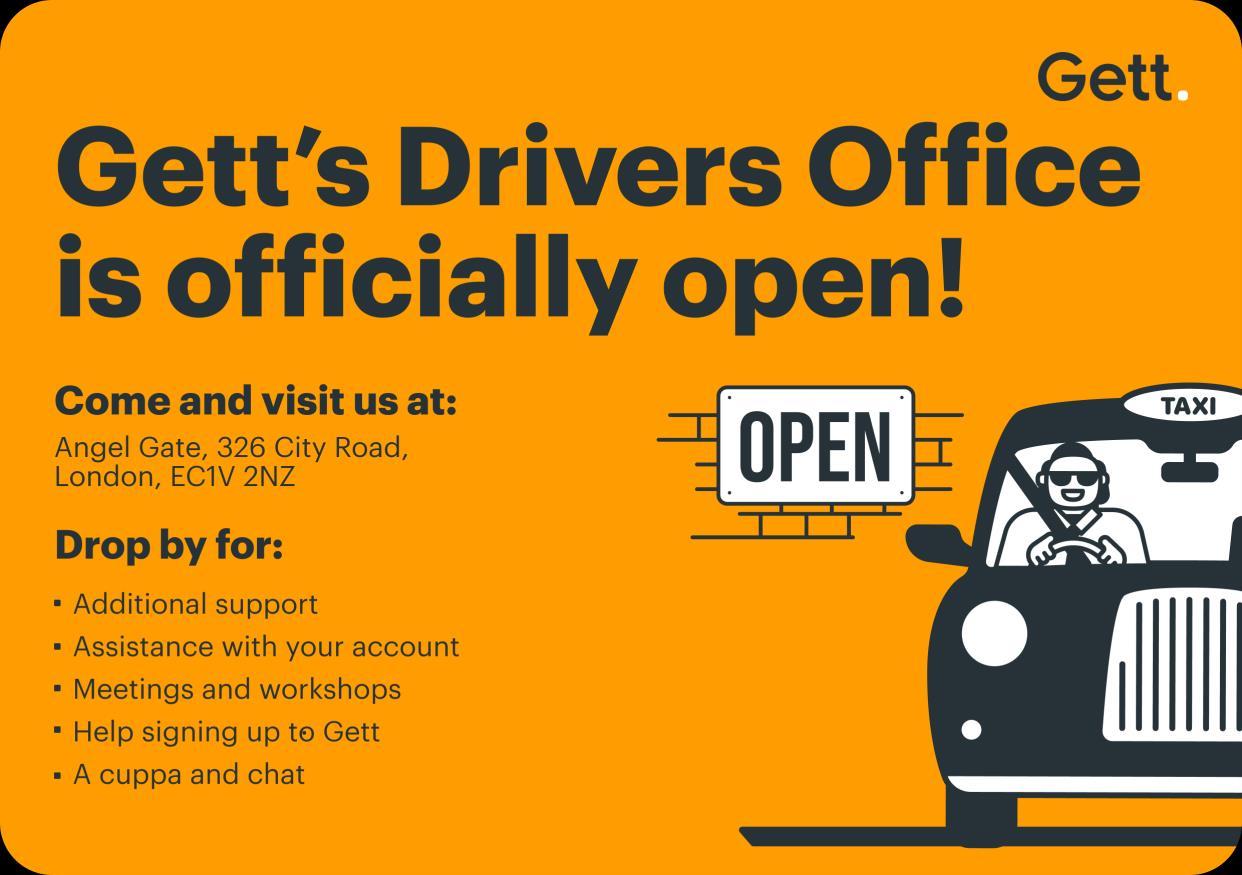
Ride-hailing companies like Uber, Bolt, and FreeNow have long faced a crucial balancing act: attracting enough passengers while also ensuring they have a reliable and satisfied driver base. But which is more important, the number of passengers or the number of drivers?
For these platforms, having too many drivers with insufficient work can be detrimental. Drivers, like any workforce, require a steady flow of work to maintain their livelihood. If this balance tips, leaving drivers with too little to do, the appeal of staying on that platform diminishes rapidly. Retention rates drop, and drivers may start looking elsewhere.
However, too much work offered at subpar rates presents a similar problem. Drivers are not just after volume; they seek quality in the fares they accept. If fares are consistently low,
even a high volume of trips will not likely keep drivers content. They may fulfil the demand but at the expense of their earnings, which leads to dissatisfaction and, ultimately, attrition. The key lies in offering a balance of fare quality and quantity. If ride prices are set too high, passengers will turn to alternative services, eroding the customer base. On the flip side, if drivers feel they’re not being fairly compensated, they will switch to other platforms that might offer better rates or more favourable conditions.
An added challenge is the flexibility of drivers to use multiple apps simultaneously. This means that securing driver loyalty isn’t just about providing

work but ensuring that work is rewarding enough to prevent drivers from splitting their time and attention between competing platforms.
Operators must carefully calibrate their offerings to drivers while keeping fares competitive for passengers. The success of these platforms hinges on getting this balance right. Too far in either direction, and the entire ecosystem could falter.


The Department for Transport (DfT) are ‘aware of the concerns’ around out-of-area working, and will be ‘considering ways to support local authorities with the issue’, Manchester Evening News was told.
The ongoing debate surrounding private hire vehicle (PHV) licensing has long taken centre stage, with Labour pledging to crack down on ‘out of area’ working in the lead up to the elections . This practice allows private hire drivers to register their vehicles in one licensing area but operate in another, often far from where they were originally licensed.
The issue has become particularly contentious in regions like Greater Manchester, where it is known as the ‘Wolverhampton Problem’. Here, a significant number of
private hire vehicles registered in Wolverhampton and other areas operate in Greater Manchester, leading to concerns about regulatory control and safety.
Critics argue that this cross-border hiring undermines local authorities' ability to manage and enforce standards. It creates disparities between regions, with some areas facing an influx of drivers and vehicles over which they have little oversight. This situation can lead to issues around public safety, driver vetting, and inconsistent service standards.
In response to growing discontent, Andy Burnham, the Mayor of Greater Manchester, announced a Labour commitment to ban this practice back in February 2024.
Speaking on BBC Radio Manchester, Burnham highlighted his discussions with Labour’s


shadow transport secretary, who confirmed the party’s intention to end ‘out of area’ working if they come into power.
Burnham said on BBC Radio Manchester: “Out of area working, the ‘Wolverhampton Problem’. I was in Westminster yesterday, discussing HS2 with the government, but I was also with the shadow transport secretary.
“I got a firm commitment from the shadow transport secretary that out of area working will
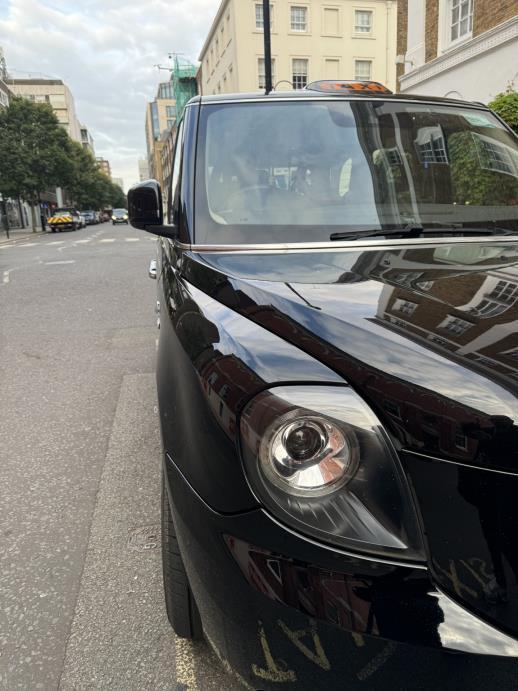
The Department for Transport (DfT) recently acknowledged the concerns surrounding PHV licensing. A spokesperson indicated that the DfT is considering ways to support local authorities in addressing the challenges posed by cross-border hiring.
A Department for Transport (DfT) spokesperson told Manchester Evening News: “We are aware of the concerns around private hire vehicle licensing, including out-of-area working, and will be considering ways to support local authorities with the issue.”
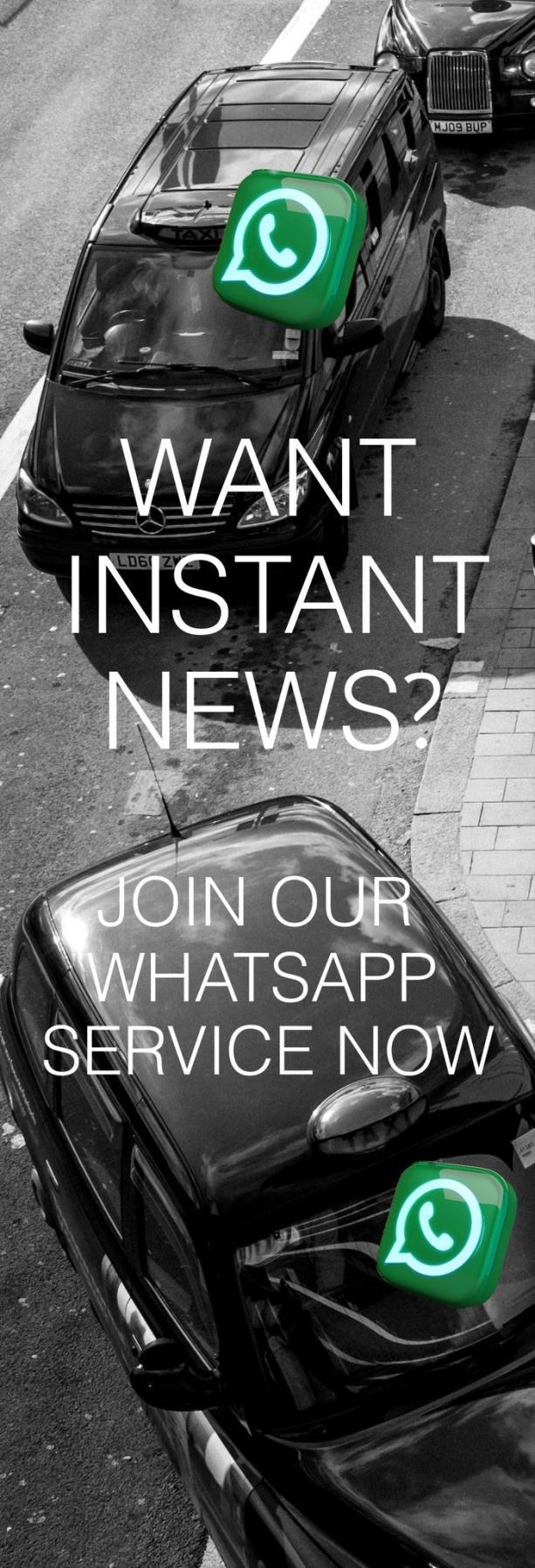

Taxi and mobility app firm FREENOW has called for a more balanced approach around new Low Traffic Neighbourhoods (LTNs) and 20 mph zones after Transport Secretary Louise Haigh reaffirmed her stance that such decisions should be made by local communities.
This policy has sparked diverse reactions, particularly from those working in the transport sector.
Sam Pooke, Senior Public Affairs Manager at FREENOW UK, welcomed efforts to improve road safety but emphasises the need for policies that take into account the needs of all road users, including taxi drivers. According to a recent survey conducted by FREENOW, a significant portion of Black Cab drivers are finding new road schemes, including Low Traffic Neighbourhoods (LTNs) and 20mph speed restrictions, challenging.
Transport Secretary Haigh has assured that local authorities will receive her full support in implementing such schemes. However, the debate continues over how to best integrate these measures while addressing the practical challenges faced by drivers and ensuring that all road users benefit from safer streets.
Pooke said: “While we always welcome regulations that aim to make our streets safer and
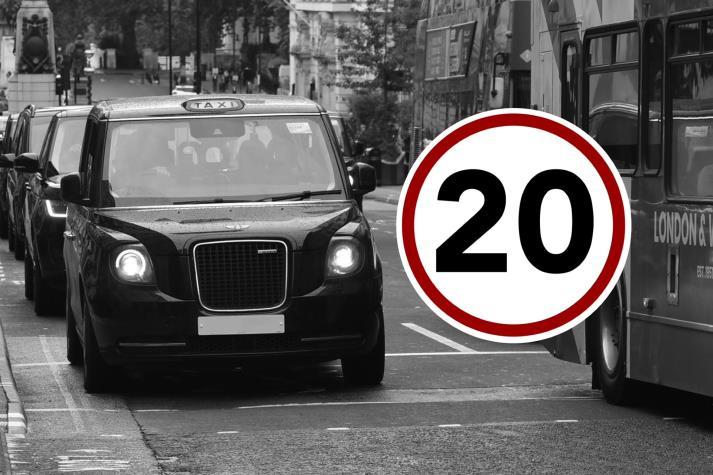
The survey revealed that 33% of drivers identify LTNs as the biggest hurdle in providing efficient service, while 31% cite 20mph zones as a major concern. More strikingly, 95% of drivers reported difficulties in picking up and dropping off passengers due to LTNs, which they believe has negatively impacted service quality and efficiency.
FREENOW stresses the importance of collaboration between policymakers and those on the front line, such as taxi drivers.
like Low Traffic Neighbourhoods (LTNs) and 20mph speed zones also considers everyone who uses our roads."
Pooke added: “At FREENOW, we are committed to supporting our drivers and delivering the best possible experience to our customers. We believe this needs a balanced approach between policy makers and those who are working on the front line – like taxi drivers. Better collaboration will ensure changes such as these can benefit everyone and avoid the unintended consequences like increased traffic, longer journeys and higher pollution.”



City of Wolverhampton Council are the latest licensing authority in the private hire vehicle (PHV) industry to ban operator signage on PHVs.
This move is said to align with government guidelines aimed at curbing the rise of fake taxis and enhancing passenger safety. But as Wolverhampton takes this bold step, questions arise about whether other licensing authorities
will now adopt similar measures to stay competitive in the licensing market.
As of 1 August, Wolverhampton PHV drivers will be prohibited from displaying livery signage on their vehicles. The change comes after a threemonth consultation period with industry stakeholders, during which 93% of over 2,250 respondents expressed support for the new rule. The overwhelming backing suggests that the trade sees clear benefits in the change, including reduced vehicle vandalism and less confusion between legitimate PHVs and taxis.

The council’s initiative primarily seeks to prevent unlicensed drivers from masquerading as legitimate PHV operators by creating fake signage. Nationally, there have been troubling reports of individuals using imitation signage to illegally ply for hire, sometimes leading to dangerous encounters for unsuspecting passengers. By removing external operator branding, Wolverhampton aims to make it easier for passengers to verify their bookings through licence plates and direct communication with operators.
While this step aims to enhance security, it also brings potential implications for the broader PHV landscape. Wolverhampton is the second largest PHV licensing authority in the UK, trailing only Transport for London (TfL), which has long maintained a ban on operator signage.
Wolverhampton’s decision could make it a more attractive option for PHV drivers, as the absence of branding may reduce the likelihood of their vehicles being targeted for vandalism. However, it may also pose challenges for enforcement officers tasked with identifying and regulating PHVs, potentially making vehicles harder to spot.
The move raises an important question: will other licensing authorities follow Wolverhampton’s lead? The adoption of similar measures could see a nationwide shift in how PHVs are regulated, but the impact on enforcement and the broader trade remains to be seen.



York Station Permit Holder Alliance and other taxi trade representatives have reached an important agreement with London North Eastern Railway (LNER) following a pivotal meeting aimed at resolving mounting tensions.
Key figures from LNER, CMAC, and York Taxi Licensing joined members of the York taxi community to discuss pressing concerns. The meeting, attended by Steph Walker from LNER and Stephen Murray from CMAC, focused on the challenges currently faced by permit holders at York Station.
One significant outcome from the meeting is the decision to closely monitor the Tearoom Square and Portico areas for parking violations. LNER has committed to issuing fines to enforce proper use of these spaces, which should help ease traffic flow and ensure that designated areas are used correctly.
This development follows the suspension of the planned strike, which had been set for 22 August to coincide with York Races’ Ladies' Day. The strike was called
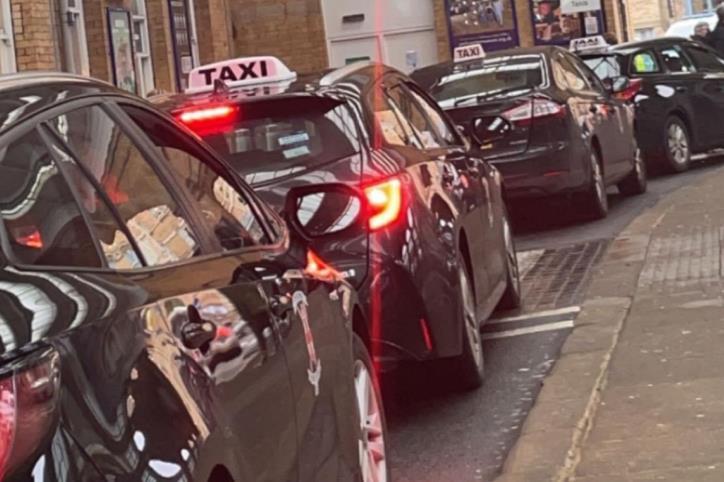
frustrations over the removal of live stream TV screens and the lack of marshals at the feeder rank.
Arshad Mahmoo, York City Taxi Association Chairman and member of the York Station Permit Holder Alliance, expressed satisfaction with the meeting's outcome, confirming that LNER will begin issuing parking tickets to unauthorised vehicles waiting in restricted areas. He emphasised the commitment to ongoing discussions with LNER and other authorities for the betterment of the taxi trade and public safety.
Mr Arshad said: “LNER will be implementing measures to issue parking tickets to Uber or other private hire vehicles waiting at
and meetings with LNER and other taxi trade and public safety.”
Arfan Asif, a taxi driver and representative for the York Station permit holders, echoed this sentiment, thanking all participants for their commitment to finding a resolution. He highlighted the importance of continued collaboration with LNER, stating that regular updates and meetings would be crucial for ensuring smooth operations and meeting the needs of the station’s permit holders.


Anyone who’s travelled across different parts of the UK may have noticed that taxi fares fluctuate considerably depending on the region. Whether you’re hailing a black cab in London or flagging down a taxi in a smaller town, the cost per mile can differ substantially.
The reasons behind these differences are largely rooted in local economic conditions, regulations, and practicalities that make a national, standardised tariff unfeasible.
Taxi tariffs are set by local councils or other relevant regulatory bodies, who take into account the specific circumstances of their area. Factors like fuel prices, vehicle maintenance, insurance, and the cost of living all play significant roles in shaping these fares.
In large cities like London, where drivers face congested roads and high operating costs, fares tend to be higher. This is not just to compensate for the longer journey times due to traffic, but also to cover the high vehicle costs and a higher cost of living. Taxi drivers in other cities also need to deal with costs that limit vehicles to wheelchair accessible or be compliant with stricter emissions standards. In rural areas, meanwhile, there may be fewer passengers but longer journeys, which demands a different fare structure to make the service viable.
Beyond operational costs, regional differences in demand also affect taxi pricing. In high-demand areas such as major cities or tourist destinations, there’s a steady stream of passengers. This means lower fares per journey while still maintaining a
high volume of business. In quieter, less populated areas, taxis are in lower demand, and tariffs maybe higher per fare to make up for the fact that there are have fewer journeys.
This balancing act between supply and demand means that a national tariff would be impractical. A standardised rate would likely undercharge in highcost regions, driving taxi companies out of business or pushing drivers to leave the profession. On the other hand, it could overcharge in areas with lower operating costs, making taxis unaffordable for many passengers in those regions. By allowing local authorities to set taxi tariffs, there is a degree of flexibility that can accommodate regional variations. Councils can adjust fares based on local circumstances, whether that’s an increase in fuel prices or changes in demand. For instance, a rise in the cost of living in a specific region could lead to an increase in taxi fares, but only in that area, thus preventing unnecessary fare hikes elsewhere.
While the idea of a uniform national taxi tariff might seem fairer or simpler on the surface, it overlooks the complexities of the industry. Regional differences in costs, demand, and even local regulations make a one-size-fits-all approach unworkable. Allowing local authorities to set tariffs based on their unique conditions ensures that fares remain fair and taxis remain accessible across the country, while also ensuring that drivers can earn a fair living wage for the area.

London EV Company (LEVC) revealed declining taxi driver numbers in London are having a negative impact on the black cab manufacturer.
In papers filed with Companies House, market analysis shows a steady reduction in drivers within LEVC's central London stronghold. The factors driving this decline include the ongoing pressure of inflation on drivers, high interest rates dissuading many from refinancing, and a decreasing number of new drivers completing the rigorous Knowledge of London.
Despite these challenges in the capital, there are positive signs outside London. The regional UK market remains stable, with Scotland seeing particularly strong uptake, thanks to Energy Saving Trust grants offering 0% financing options for taxi drivers.
In 2023, LEVC saw a dip in total sales to 2,024 units, marking a 14% decline compared to the previous year. This reduction was primarily linked to a drop in VN model sales. However, there was a silver lining with UK sales of the TX model reaching their highest levels since 2019. The rise in TX sales is attributed to diversifying into new markets, including patient transfers, school transport for children with mobility needs, and tourist mobility services.

LEVC's commercial strategy was said to have remained focused on the growing demand for environmentally friendly transport, driven by government policies aimed at reducing emissions. Although demand for the TX model remained robust, the company responded to the decline in VN sales by enhancing financing options for fleet customers and adjusting warranty pricing and discount structures.
In terms of financial health, LEVC made strategic moves to bolster its position. Two major capital injections from Natixis SA and Geely UK Limited strengthened its financial footing. A further £100 million recapitalisation is planned for 2024, aimed at addressing declining net worth and improving liquidity.

Transport for London (TfL) conducted out-of-area compliance checks at Gatwick Airport to ensure safety beyond London.
On 29 July, TfL executed a ’Compliance Reassurance Patrol’ at Gatwick Airport. The operation aimed to assess the compliance of taxi and private hire vehicles (PHVs) with safety regulations.
According to a Freedom of Information (FOI) request, five TfL officers inspected a total of 32 vehicles and checked the credentials of an equal number of drivers during the patrol.
Recent data released by Transport for London (TfL) sheds light on compliance issues among taxi and private hire drivers at Paddington Station over the past three years.
According to the figures, 643 drivers and 559 vehicles were reported as non-compliant during this period.
TfL's compliance operations at Paddington Station focus on a range of regulatory checks. The figures
The inspection uncovered six instances of vehicle defects. Notable issues included two vehicles with tyre wear below the legal limit, two without the mandatory ‘No Smoking’ signage, and two fitted with unapproved CCTV systems.
Though Gatwick Airport lies outside London, TfL has a mandate to ensure that any vehicles licensed under its authority adhere to strict safety and regulatory standards, even when operating beyond the city’s boundaries.
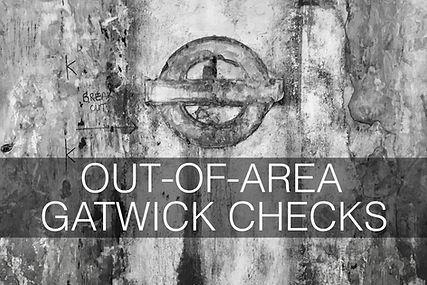
reveal that 102 taxi drivers were reported for various infractions, with the most common being failure to wear badges, failure to produce bills, smoking inside the vehicle, and issues related to hire and reward insurance. Additionally, unattended taxis on the rank also contributed to the number of issues found.
Private hire drivers fared worse, with 541 reported cases of non-compliance. Common issues included failure to wear badges, problems with hire and reward insurance, smoking in the vehicle, and defaced licence discs.
When it comes to vehicle compliance, 213 taxi vehicles were flagged, predominantly due to issues like lack of MOT, tyre problems, and bodywork issues, including improper signage. Private hire vehicles again showed a higher rate of noncompliance, with 346 vehicles reported for similar issues.


FREENOW, a leading taxi app, is taking decisive steps to address the issue of high cancellation rates by hotels. The company has announced plans to collaborate closely with hotels to reduce these cancellations, a move aimed at improving the overall experience for drivers using the app.
The problem of frequent cancellations by hotels has been a growing concern, negatively impacting drivers and their livelihoods. When a hotel cancels a booking, drivers often find themselves left in the lurch, with wasted time and fuel costs. This creates a ripple effect, frustrating not just drivers, but also passengers and venues when future legitimate requests are ignored.
In ongoing commentary highlighted by TaxiPoint, it was revealed that cancellations often occur due to a lack of consideration by hotel staff to ensure the passenger gets into the correct vehicle ordered or multiple vehicles are ordered to make sure at least one taxi arrives.

Take Me Group Limited has announced their expansion in the North West following the acquisition of GM Travel, a Northwich-based private hire firm.
The deal brings an additional 50 vehicles into the Take Me fleet, enhancing the group's ability to serve customers in the region.
David Hunter, CEO of Take Me Group, expressed his enthusiasm for the partnership, highlighting the strong reputation GM Travel has built under the leadership of Mustafa Ghulam.
This behaviour then leads to a so-called "circle of rejection" where drivers are then forced to decline new future jobs from the same venue after being stood up by hotels without any cancellation fees paid. This cycle of frustration damages the trust between all parties involved and erodes the reliability of the service as passengers are then left stranded.
FREENOW has made it clear that hotels failing to address their cancellation rates may face removal from the app. This measure is intended to ensure that drivers are not repeatedly subjected to the financial and operational setbacks caused by unfulfilled bookings.
By tightening the reins on cancellations, FREENOW aims to create a more stable and reliable service for drivers, passengers, and hotel partners alike.


TThe Dutch Data Protection Authority (DPA) has levied a substantial €290 million (£245 million) fine on Uber for violating European data protection laws. The regulator found that Uber had transferred personal data of European taxi drivers to the United States without sufficient safeguards, breaching the General Data Protection Regulation (GDPR).
The investigation revealed that Uber transferred sensitive driver information, including account details, taxi licences, location data, photos, payment information, identity documents, and, in some cases, even criminal and medical records, to its US headquarters. This data transfer occurred over a period of more than two years without the required protection mechanisms in place.
Uber have called the decision ‘flawed’ and will appeal. In a statement from the ridehail giants it says: “This flawed decision and extraordinary fine are completely unjustified. Uber’s cross-border data transfer process was compliant with GDPR during a three-year period of immense uncertainty between the EU and US.
“We will appeal and remain confident that common sense will prevail.”
Aleid Wolfsen, chairman of the Dutch DPA, however highlighted the importance of GDPR in safeguarding the fundamental rights of Europeans. He noted that businesses must take additional precautions when storing personal data outside the European Union, a responsibility that Uber neglected.
Wolfsen said: “In Europe, the GDPR protects the fundamental rights of people, by requiring businesses and governments to handle personal data with due care.
"But sadly, this is not self-evident outside Europe. Think of governments that can tap data on a large scale. That is why businesses are usually obliged to take additional measures if they store personal data of Europeans outside the European Union. Uber did not meet the requirements of the GDPR to ensure the level of protection to the data with regard to transfers to the US. That is very serious."
The violation was seen to become particularly serious after the EU-US Privacy Shield was invalidated by the European Court of Justice in 2020. While Standard Contractual Clauses could still be used for data transfers to countries outside the EU, companies must ensure equivalent protection to the GDPR. The Dutch DPA found that Uber failed to meet these requirements, particularly after August 2021, when the company stopped using these clauses.
The fine follows a complaint lodged by more than 170 French drivers through the Ligue des droits de l’Homme (LDH) to the French DPA. Given Uber's European headquarters in the Netherlands, the Dutch DPA led the investigation, working closely with its French counterpart and coordinating with other European regulators.
This marks the third significant fine imposed on Uber by the Dutch DPA, following penalties of €600,000 in 2018 and €10 million earlier this year.


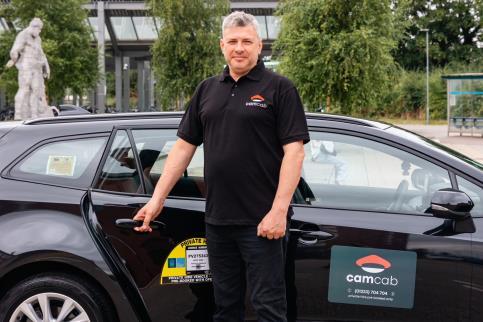
Cambridge private hire service, CamCab, is celebrated two decades of service with a striking rebrand and a golden opportunity for its passengers.
On Friday 23 August, CamCab unveiled its new look, marking the occasion with a special offer. A select number of passengers were treated to free rides throughout the day. Those customers were able to spot their lucky ride by the golden taxi-driver’s cap prominently displayed on the dashboards of three CamCab vehicles.
In addition to the golden ride giveaway, all passengers who travelled in CamCab-branded vehicles between 23 August to 1 September also benefitted from a 20% discount on their fares.
The rebrand, designed by creative agency Dot.Social, introduces a contemporary colour scheme, shifting from the previous bright yellow to a sleek red and dark green. This new palette reflects the company’s commitment to sustainability while also paying tribute to Cambridgeshire’s verdant landscapes. Despite the fresh colours, the iconic chauffeurs-driver hat logo, a staple of CamCab’s identity, remains firmly in place.
CamCab, which became part of the DG Group in 2022, continues to be a key player in the UK’s private hire sector. This rebrand not only commemorates its 20-year milestone but also signals the company’s ongoing evolution in a competitive market.
Specialist Risk Group (SRG) has bolstered its position in the UK taxi insurance market through the acquisition of Morton Insurance Brokers’ ongoing renewal rights.
This move is the latest in SRG’s strategy to expand its Specialist Risk Insurance Solutions (SRIS) division.
Morton Insurance Brokers, based in London, has been a cornerstone in the UK’s taxi and private hire insurance sector since 1987. Known for its

tailored solutions, Morton has built a solid reputation among taxi operators nationwide. By integrating Morton into SRIS, SRG aims to enhance its existing services, particularly within its Cabsurance business, which specialises in London Black Cab insurance. The combination of Morton’s experience with SRG’s resources is set to offer UK taxi and private hire operators a more extensive range of insurance products and improved support systems.

Uber Technologies and Cruise have announced a significant multiyear partnership aimed at integrating autonomous vehicles into the Uber ridehailing platform.
The collaboration will see a fleet of Chevy Bolt-based autonomous vehicles from Cruise made available to Uber users starting next year.

Dara Khosrowshahi, Uber CEO, said: “As the largest mobility and delivery platform, we believe Uber can play an important role in helping to safely and reliably introduce autonomous technology to consumers and cities around the world.
“We’re thrilled to partner with Cruise and look forward to launching next year.”
The partnership represents a pivotal step in the evolution of both companies. For Uber, it expands its transportation options by incorporating Cruise's driverless technology. Cruise, a leader in the autonomous vehicle sector, will gain access to Uber's vast user base, enhancing its presence in the competitive landscape of urban transportation.
When the partnership goes live, Uber riders may have the opportunity to choose a Cruise autonomous vehicle when booking their journeys through the app. This development could mark a significant shift in how passengers experience ridehailing, as driverless technology begins to ramp up in certain communities.
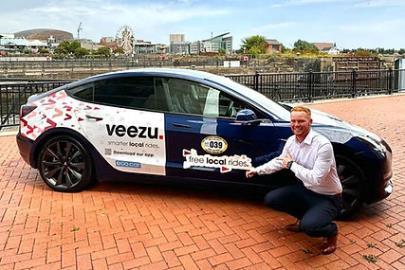
Veezu has launched a new initiative offering Cardiff residents complimentary rides in its Tesla private hire vehicles.
This promotion, running until the end of 2024, aims to support locals during the ongoing cost-of-living crisis while also promoting low-emission transport in the city.
The scheme allows passengers to enjoy free rides on any local journey within Cardiff, provided they are lucky enough to be allocated one of Veezu's Tesla cars. The allocation is random, with the vehicle being assigned on a daily basis, offering an unexpected benefit to those who book.
Veezu's initiative provides an ecofriendly and economical option for residents, ensuring that transportation costs do not become a barrier to travel. This project is the first of its kind for Veezu in the region and is seen as a commitment to both community support and sustainable travel.


Basingstoke and Deane Borough has taken a significant step towards sustainable transport with the introduction of ultra-low carbon hackney carriages.
The first of up to 17 new electric taxis has begun service, marking a milestone in the borough’s efforts to support greener and more accessible travel.
The new vehicles are part of a council-led initiative offering local taxi drivers a £5,000 grant to assist in upgrading to these environmentally friendly cabs. The initiative aims to increase the number of ultra -low emission hackney carriages on the road.
Cabinet Member for the Climate and Ecological Emergency Cllr Chris Tomblin said: “I welcome to Basingstoke’s taxi ranks the first of what I hope is many new low-carbon hackney carriages under our scheme to get more people travelling in cleaner and greener ways.
“Not only are the emissions from these electrically powered vehicles up to 94% lower than regular diesel taxis, helping to support our aim for a net zero carbon borough by December 2030, but they can also save taxi drivers upwards of £150 a week on fuel too.”
The Private Hire Drivers Alliance (PHDA) staged a demonstration in St Peter’s Square. The action was part of the PHDA's ongoing campaign to address critical issues affecting private hire drivers, specifically pay, recruitment, and safety at work.
The PHDA sought to raise awareness about the challenges its members face, which they argue are rooted in decisions made by private hire operators and shaped by government legislation. Contrary to what might be assumed, the protest was not directed at the local council.
City of Wolverhampton Council officials clarified that the issues raised by the PHDA such as pay rates and driver safety are beyond the council’s control. The council’s licensing team has engaged with the alliance but has reiterated that they lack the legal authority to implement the changes demanded, such as setting higher minimum pay standards or limiting the number of new drivers.
This demonstration in St Peter’s Square follows a similar event held outside private hire operators’ offices in Birmingham.

This week, the Local Government Licensing Panel in East Ayrshire will consider the suspension of licences for eleven taxi drivers who failed to attend mandatory disability awareness training.
A council report outlines the issue, noting that the drivers were given at least three opportunities to attend the required training before being referred to the Licensing Panel. Despite multiple attempts by licensing staff to contact these drivers through letters, emails and phone calls, some remain unresponsive.
The training is a condition of their licences, intended to ensure that all taxi and private hire
drivers in the region are adequately prepared to serve passengers with disabilities.
Regular sessions are held at the council headquarters, with the next one scheduled for 9 September.
The report highlights that some of the drivers may no longer be using their licences but have not officially surrendered them, leading to outdated records.
The Licensing Panel will now decide whether to proceed with suspensions for those who have failed to comply with the training requirement.
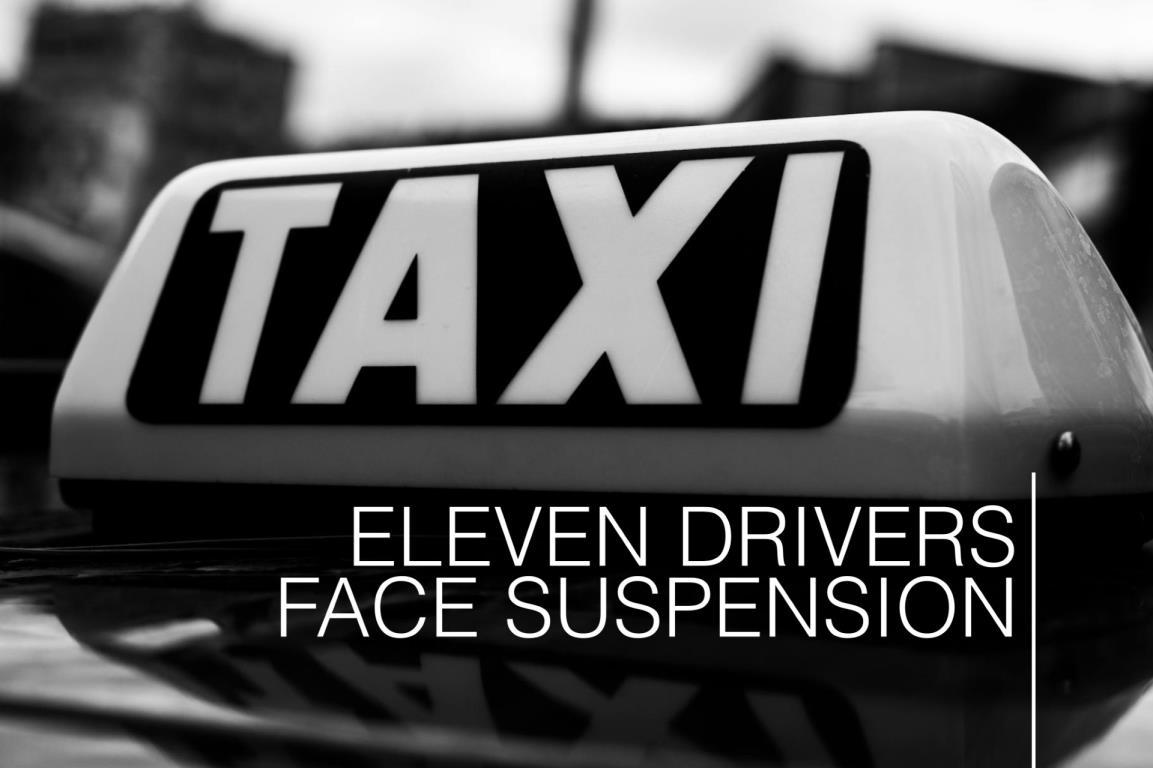

North Yorkshire Council is set to consider significant updates to its taxi licensing policy, aiming to make services more inclusive and environmentally friendly.
The proposed changes, which will be reviewed by the General Licensing and Registration Committee, could lead to a mandatory requirement for new hackney carriage vehicles to be either Wheelchair Accessible Vehicles (WAVs) or Zero-Emission Vehicles (ZEVs).
The move follows the council's formation on 1 April 2023, when a single policy incorporating Department for Transport guidance was introduced. However, further improvements are now being sought to ensure taxi services meet the needs of all residents, particularly those requiring WAVs.
A newly drafted Inclusive Service Plan (ISP) will accompany the updated policy. This plan is designed to enhance accessibility, address noncompliance issues, and educate drivers on the legal rights of disabled passengers. Research has identified a gap in
the availability of WAVs across the region, prompting the council to take action.
Currently, there is no requirement for hackney carriages to be wheelchair accessible, a situation the council aims to rectify. Despite previous incentives, such as waiving licence fees and relaxing age limits for WAVs, their numbers have remained static.
If the proposals are approved, new licensing requirements would be phased in from 1 April 2025 for new vehicles and 1 January 2030 for existing ones. This timeline would be set to allow current licence holders ample time to transition to compliant vehicles.


These changes will be limited to hackney carriages, with private hire vehicles unaffected. Additionally, the council is responding to trade requests by introducing new emission standards, revising vehicle testing frequency, and offering drivers the chance to apply for specific types of licences. The committee's recommendations will be presented to the council's executive on 17 September. Should the executive approve, a 12week public consultation will follow, allowing residents and stakeholders to share their views on the proposed changes via the council’s website.
Cllr Greg White, Executive Member for Licensing, said: "We remain committed to ensuring the availability of an accessible and affordable taxi service across North Yorkshire, especially for those who are particularly reliant on it as a means of travel.
"In the past, we have explored other incentives to increase the number of Wheelchair Accessible Vehicles. However, the number in North Yorkshire remains steady, so we are proposing to take a bold step and require all new applications for hackney carriages to be either a Wheelchair Accessible
Vehicle or Zero-Emission Vehicle, along with a phasing out period for existing vehicles.
"This new approach, along with our Inclusive Service Plan, shows that we’re serious about improving services, which are invaluable to so many in our community to assist in just living their everyday lives, getting to work, medical appointments, education or meeting up with friends."
Cllr White added: "At the time of adoption, we knew there were further adjustments we could make to the policy. These improvements help us provide a service that is both fair to the trade and also ensure the ongoing provision of safe and accessible hackney carriage and private hire vehicles for customers."
Cllr Tim Grogan, Chair of the General Licensing and Registration Committee, said: “The licensing policy is never static, it is always changing, being interpreted or redefined. The committee understands this and will robustly debate the issues raised in order to improve our hackney carriage and private hire service.”



Five men have been arrested in connection with an early morning assault on a taxi driver in Bootle.
The incident occurred on Friday, 30 August, shortly after 5.30am on Linacre Lane.
Police were alerted to the situation after receiving a report that three men had assaulted a taxi driver and stolen money from his cab.
The driver did not sustain any injuries during the altercation.
Following a swift investigation, officers tracked the suspects to an address in Walton. Five men were arrested at the scene.
They are currently being held on suspicion of a series of serious offences, including threats to kill, racially aggravated public order, affray with a weapon, and theft.
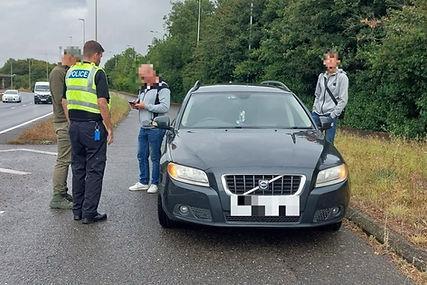
A recent routine breakdown assistance on the Fletton Parkway in Peterborough took an unexpected turn. A driver, initially in need of help after his car broke down, was discovered to be operating an unlicensed taxi service.
The incident unfolded when local police arrived at the scene, intending to assist the stranded motorist. However, a closer inspection revealed that the driver was providing transport services without holding the necessary insurance coverage.
Authorities confirmed that the individual has been reported for this offence.
This case highlights the ongoing issue of unlicensed and uninsured vehicles operating on the roads, posing a significant risk to passengers and other road users. The investigation is ongoing.
A Policing Peterborough spokesperson said via social media: “It was a bad day for one driver on Saturday first his car broke down on the Fletton Parkway, then we came along (initially to help) but found he had been running a ‘taxi service’ without the correct insurance!
“The driver has been reported for the offence.”



















